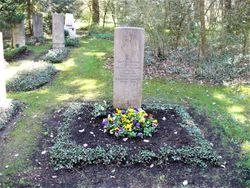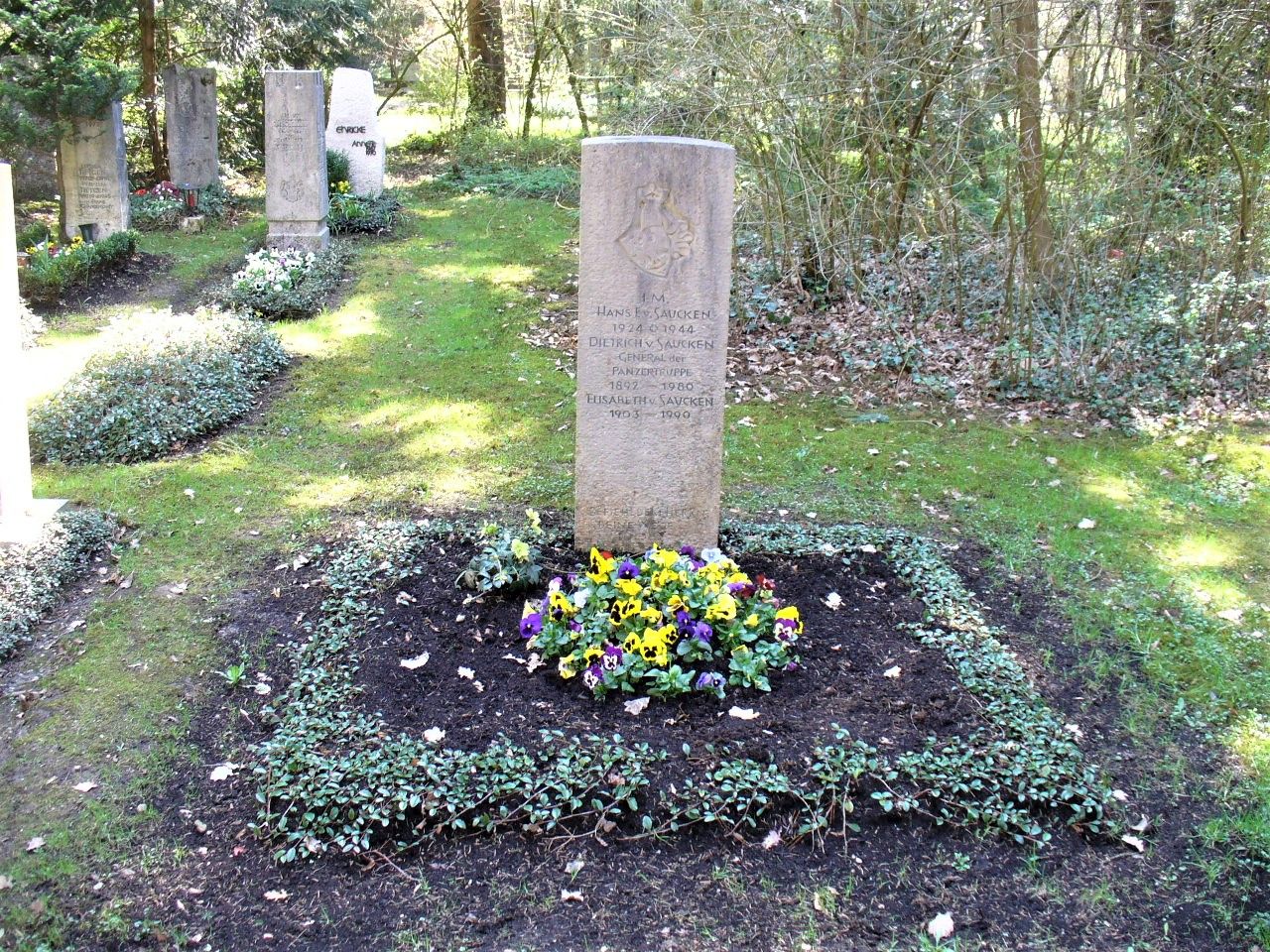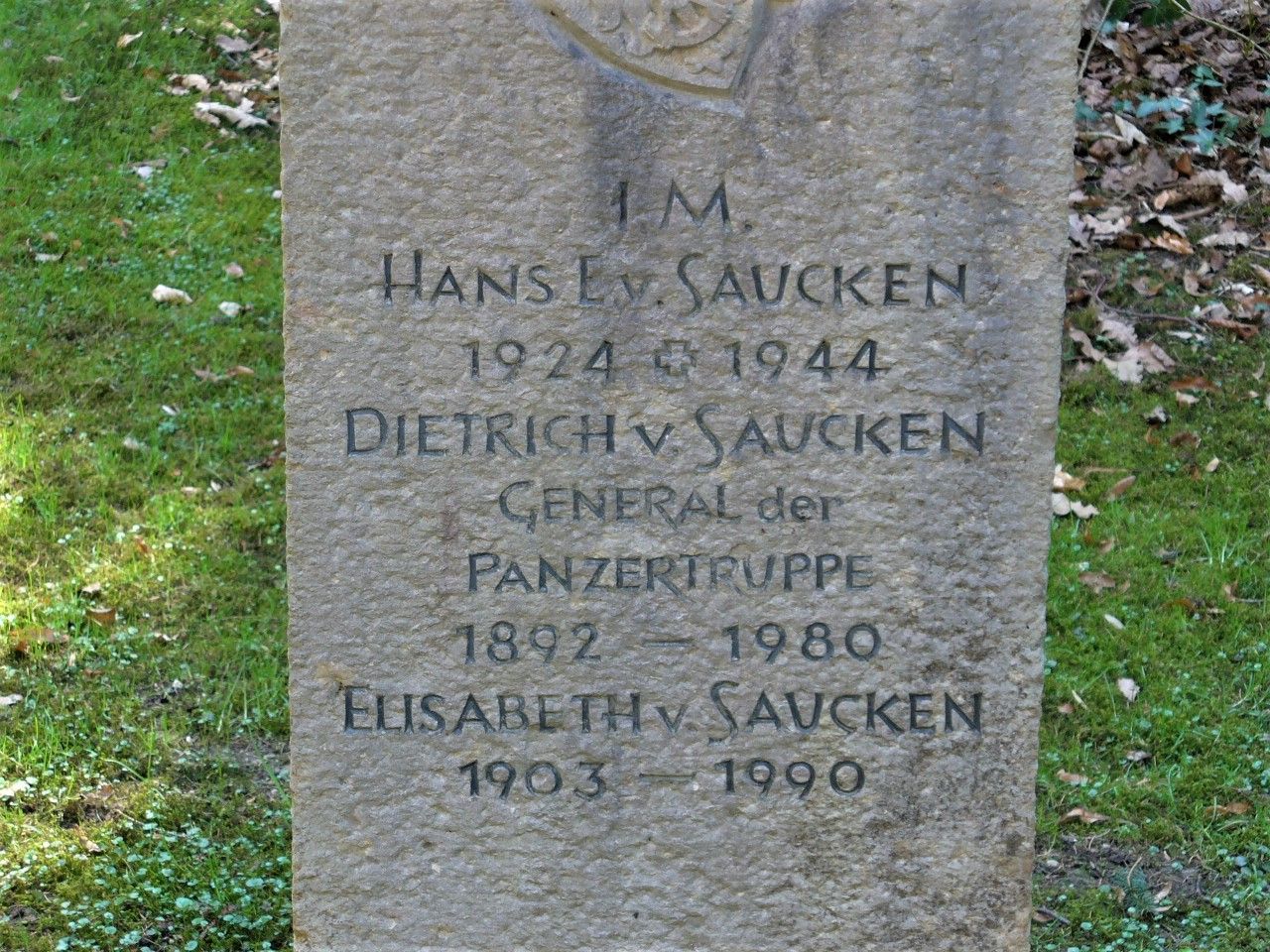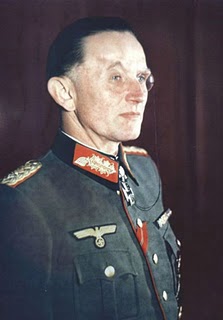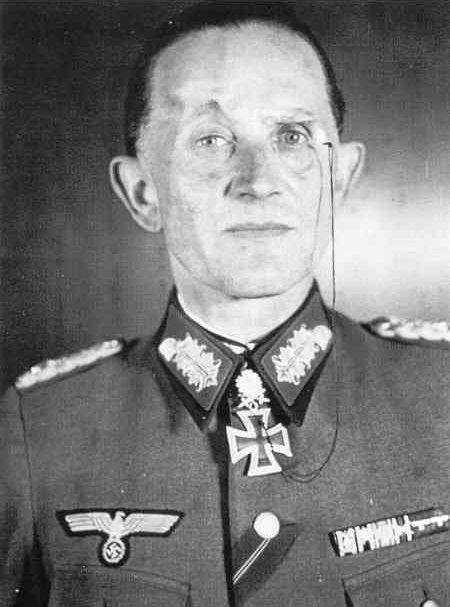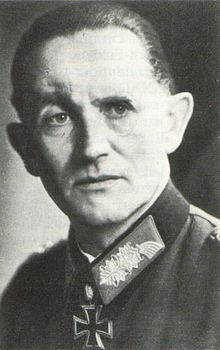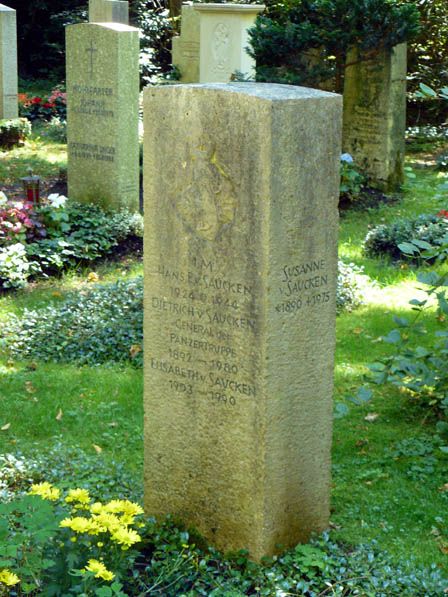Born in Fischhausen, East Prussia, Saucken joined the German Army in 1910 and achieved the rank of lieutenant in June 1912. As a colonel he served in the pre-war Wehrmacht and was promoted to the rank of major general on January 1, 1942. Appointed to command the 4th Panzer Division at the end of 1941, he later served as commandant of the German School for Mobile Troops (Schule für Schnelle Truppen). In late June 1944, as deputy commander of the III Panzer Corps, he formed an ad hoc unit known as "Group von Saucken" from the remainders of several units that had been smashed in the Soviet assault on Army Group Centre. This grouping (later XXXIX Panzer Corps) attempted to defend the occupied city of Minsk and temporarily maintained an escape route across the Berezina River for retreating German soldiers in the face of overwhelmingly superior Soviet forces.
In the last months of the war, Saucken led the Second Army in its defence of East and West Prussia, ordering the surrender of his army one day after the unconditional surrender of all German forces on May 8, 1945. After surrendering von Saucken went into Soviet captivity. He was sentenced to 25 years hard labour, commutted to 30 months. Saucken was released in 1955. He died in 1980.
Saucken was one of the few German officers to receive the Knight's Cross with Oakleaves, Swords, and Diamonds during the Second World War.
Famous Event:
A cavalry officer who regularly wore both a sword and a monocle, Saucken personified the aristocratic Prussian conservatives who despised the Braune Bande (brown mob) of Nazis. When he was ordered to take command of the 2nd Army on March 12, 1945, he was told by Hitler that he must take his orders from Albert Förster, the Gauleiter (Nazi governor) of Danzig. Saucken replied "I have no intention of placing myself under the orders of a Gauleiter". In doing this he had bluntly contradicted Hitler and not addressed him as Mein Fuhrer. To the surprise of everyone who was present, Hitler capitulated and replied "All right Saucken, keep the command to yourself". (Source: Beevor, Antony. Berlin the Downfall 1945 ISBN 0-670-88695-5. p.120.)
Born in Fischhausen, East Prussia, Saucken joined the German Army in 1910 and achieved the rank of lieutenant in June 1912. As a colonel he served in the pre-war Wehrmacht and was promoted to the rank of major general on January 1, 1942. Appointed to command the 4th Panzer Division at the end of 1941, he later served as commandant of the German School for Mobile Troops (Schule für Schnelle Truppen). In late June 1944, as deputy commander of the III Panzer Corps, he formed an ad hoc unit known as "Group von Saucken" from the remainders of several units that had been smashed in the Soviet assault on Army Group Centre. This grouping (later XXXIX Panzer Corps) attempted to defend the occupied city of Minsk and temporarily maintained an escape route across the Berezina River for retreating German soldiers in the face of overwhelmingly superior Soviet forces.
In the last months of the war, Saucken led the Second Army in its defence of East and West Prussia, ordering the surrender of his army one day after the unconditional surrender of all German forces on May 8, 1945. After surrendering von Saucken went into Soviet captivity. He was sentenced to 25 years hard labour, commutted to 30 months. Saucken was released in 1955. He died in 1980.
Saucken was one of the few German officers to receive the Knight's Cross with Oakleaves, Swords, and Diamonds during the Second World War.
Famous Event:
A cavalry officer who regularly wore both a sword and a monocle, Saucken personified the aristocratic Prussian conservatives who despised the Braune Bande (brown mob) of Nazis. When he was ordered to take command of the 2nd Army on March 12, 1945, he was told by Hitler that he must take his orders from Albert Förster, the Gauleiter (Nazi governor) of Danzig. Saucken replied "I have no intention of placing myself under the orders of a Gauleiter". In doing this he had bluntly contradicted Hitler and not addressed him as Mein Fuhrer. To the surprise of everyone who was present, Hitler capitulated and replied "All right Saucken, keep the command to yourself". (Source: Beevor, Antony. Berlin the Downfall 1945 ISBN 0-670-88695-5. p.120.)
Family Members
Sponsored by Ancestry
Advertisement
Explore more
Sponsored by Ancestry
Advertisement
